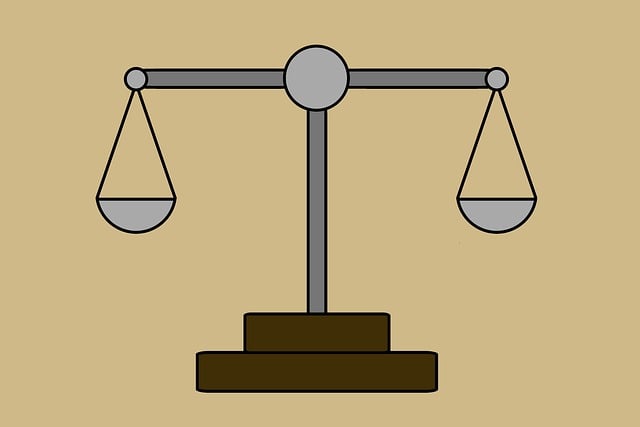Court Document UK translation services are a cornerstone of the judicial system, offering precise and legally compliant translations for international legal proceedings within the UK. These specialized services ensure that all translated documents, from contracts to personal statements, maintain the integrity and intent of the original text, adhering to stringent legal standards and meeting the requirements for admissibility in UK courts. With a focus on both linguistic accuracy and legal nuance, these services are provided by certified professionals who uphold confidentiality and data protection, safeguarding sensitive information under GDPR and the Data Protection Act 2018. The expertise of these translators has proven critical in complex international cases, facilitating clear understanding and fair outcomes in diverse legal contexts across the UK.
Navigating the legal system, especially with international elements, can be complex. In the UK, where court proceedings may involve documents originating from diverse linguistic backgrounds, precise translation is paramount. This article delves into the critical role of professional court document translation in upholding justice within the UK’s legal framework. We will explore the nuances of translating legal texts, the stringent requirements for accuracy and confidentiality, and the technological advancements that facilitate this essential process. From understanding the necessity of expert translators to the future trends in court document translation services, this comprehensive guide is designed to inform stakeholders about the best practices and considerations when dealing with court documents in the UK’s legal arena.
- Understanding the Necessity of Professional Court Document Translation for UK Legal Proceedings
- Overview of Legal Court Documents in the UK Context
- The Role of Accurate Translations in UK Court Cases
- Common Types of Court Documents Requiring Translation in the UK
- Navigating Language Barriers: The Importance of Expert Translators in Legal Settings
- Legal Requirements for Translated Court Documents in the UK
- Choosing the Right Translation Services for Court Documents in the UK
- The Process of Translating Court Documents for UK Use
- Confidentiality and Data Protection in Court Document Translation Services
- Case Studies: Successful Translation of Court Documents in UK Legal Proceedings
Understanding the Necessity of Professional Court Document Translation for UK Legal Proceedings

In the UK legal system, the accuracy and clarity of court documents are paramount for proceedings to be conducted justly and effectively. When legal cases involve parties from different linguistic backgrounds, professional translation services become an indispensable tool to ensure that all parties can comprehend and engage with the court documents accurately. Court Documents UK translation services specialise in converting legal texts into clear and precise English, facilitating a common understanding among legal entities and ensuring compliance with the law. The role of these services is not merely to translate words but to convey the precise intent and legal implications contained within the documents. This is crucial for maintaining the integrity of the legal process, as any misinterpretation could lead to miscarriages of justice or unfair legal outcomes. By leveraging the expertise of professional translators who are well-versed in both language and legal terminology, legal professionals can confidently navigate cross-linguistic cases, upholding the principles of fairness and impartiality that are at the heart of the UK’s judicial system.
Overview of Legal Court Documents in the UK Context

The Role of Accurate Translations in UK Court Cases

In the context of UK court cases, the precise and accurate translation of court documents is paramount. The judicial system in the United Kingdom operates on a foundation of legal clarity and procedural fairness, where all parties are afforded the opportunity to understand and be understood. Court documents UK translation services play a crucial role in this process, ensuring that written materials such as witness statements, affidavits, and legal pleadings are accurately translated between parties who may speak different languages. This is not merely a matter of semantics; it encompasses the nuances of legal terminology and the cultural contexts from which these documents originate. The fidelity of such translations affects the outcome of cases, as they must convey the exact intent and implications of the original text to avoid misinterpretation or legal prejudice. Consequently, court documents UK translation services are indispensable for maintaining the integrity of legal proceedings and upholding justice. Professionals in this field are not just linguists but legal experts who understand the intricacies of UK law, ensuring that translated content adheres to both the letter and the spirit of the legislation at hand. This level of expertise is essential for maintaining trust in the legal process and for safeguarding the rights of all individuals involved in court cases within the UK jurisdiction.
Common Types of Court Documents Requiring Translation in the UK

When legal proceedings cross international borders, the necessity for accurate and reliable court document translations arises. In the UK, where justice is administered under a complex system of common law, civil law, and statutory provisions, translation services play a crucial role in facilitating fair and equitable legal processes. Court documents UK translation services are instrumental in handling various types of documents that are regularly required to be translated within the judicial context. These commonly include Witness Statements, which provide factual accounts from individuals relevant to the case; Affidavits, sworn statements confirmed under oath; and Judgments or Orders issued by the court, which need to be comprehended by all parties involved, regardless of their language proficiency. Additionally, legal correspondences such as Letters of Demand, Summonses, and Subpoenas are often translated to ensure that all litigants and stakeholders understand the nature and implications of these formal communications. In cases involving international disputes or defendants, translations of Discovery Documents, which contain evidence disclosed by one party to another during the discovery phase of litigation, are essential. Furthermore, Agreement and Contract documents, often drafted in languages other than English, require precise translation to ensure that terms and conditions are accurately conveyed. The role of court document UK translation services is indispensable, as they uphold the integrity and clarity of legal communications, thereby supporting the administration of justice across linguistic and cultural boundaries.
Navigating Language Barriers: The Importance of Expert Translators in Legal Settings

Navigating language barriers within legal court documents is a complex challenge that requires meticulous attention to detail and specialized knowledge. In the UK, where the legal system is intricate and documentation is precise, translations are not just about converting text from one language to another; they involve understanding the nuances of both languages and the legal context in which the document exists. Expert translators who specialize in legal translation services for the UK are indispensable in this scenario. They ensure that court documents accurately reflect the original content’s intent, legal implications, and technical terminology, which is crucial for the judicial process to proceed without misunderstandings or misinterpretations. Their proficiency allows for a seamless transition of information across languages, facilitating fairness and justice in multilingual settings. Choosing reputable court documents UK translation services guarantees that all parties involved have access to clear, accurate translations, which is essential for the integrity of legal proceedings and outcomes.
Legal Requirements for Translated Court Documents in the UK

When legal matters span across jurisdictions, the accuracy and authenticity of court documents become paramount. In the UK, translated court documents must adhere to strict legal requirements to ensure they convey the exact meaning as the original text. Court Documents UK translation services play a critical role in this process by providing translations that are not only linguistically correct but also legally compliant. The UK’s judicial system recognises that translated documents may be submitted as evidence, and as such, these must meet the standards set out by the relevant authorities. Translators accredited by the Association of Translation Companies (ATC) or Institute of Translation and Interpreting (ITI), for instance, are often preferred due to their professional expertise and adherence to a code of conduct. Additionally, translations may require an official stamp or certification to validate the translator’s qualifications and confirm the accuracy of the translation. This certification can vary from a simple statement by the translator to a full apostille, depending on the document’s intended use and the country of origin. Court Documents UK translation services ensure that all translations meet these stringent requirements, thereby facilitating the legal process and upholding the integrity of judicial proceedings within the UK’s complex legal framework.
Choosing the Right Translation Services for Court Documents in the UK

When legal proceedings traverse national borders, the accuracy and reliability of court documents translated for UK use become paramount. Selecting the right translation services for court documents in the UK is a critical decision that can impact the outcome of legal cases. It is imperative to choose translators who are not only proficient in both languages involved but also possess specialized knowledge in legal terminology and the intricacies of the UK’s legal system. Court Documents UK translation services should be provided by professionals certified by relevant authorities, ensuring their expertise aligns with the high standards required for legal proceedings. These specialists should be adept at conveying complex legal concepts accurately, maintaining the integrity of the original document while adhering to the specific formalities demanded by UK courts. Additionally, they must ensure confidentiality and handle sensitive information with discretion, as is expected within the legal domain. Opting for translation services that offer a blend of linguistic prowess and legal acumen is essential for navigating the UK’s judicial landscape effectively.
The Process of Translating Court Documents for UK Use

When legal proceedings span across international borders, the accuracy and precision of court documents translations become paramount for their admissibility in UK courts. The process of translating court documents for UK use is a specialized task that requires not only linguistic expertise but also an understanding of the legal terminology and context specific to each case. Court Documents UK translation services are staffed by professional translators who hold certification in legal translation, ensuring that all translated content adheres to the stringent standards required by the UK legal system. These translators undergo a rigorous vetting process to guarantee their proficiency, as the translation of legal documents involves not just word-for-word transfer but also the conveyance of legal nuances and implications that may be lost in translation otherwise.
The translators employed by Court Documents UK translation services work meticulously to provide a faithful representation of the original text, maintaining the integrity and clarity of the content. This includes not only the direct translation but also the appropriate formatting and annotation to meet the legal requirements of the UK, such as affixing certificates of accuracy and authenticity. The translation process is often conducted in stages, beginning with a thorough review of the document’s content, followed by the actual translation, and culminating in a final verification to ensure that every term, figure, and clause has been accurately rendered into English. This comprehensive approach to legal translation ensures that all court documents translated for UK use are both legally and linguistically sound, providing legal professionals with reliable and actionable translations that stand up to judicial scrutiny.
Confidentiality and Data Protection in Court Document Translation Services

When engaging with court document translation services within the UK, confidentiality and data protection emerge as paramount concerns. The translators employed by reputable UK translation services are bound by stringent legal obligations under the General Data Protection Regulation (GDPR) and the UK’s Data Protection Act 2018. These regulations safeguard the personal information contained within court documents, ensuring that sensitive data remains secure throughout the translation process. The service providers must implement robust security measures to prevent unauthorized access or disclosure of information, maintaining the integrity and confidentiality of each case’s documentation. Furthermore, the translators are required to handle all documents with the utmost discretion, recognizing the potential implications for justice and individual privacy if this responsibility is not upheld. As such, when court documents require translation in the UK, clients can trust that their information will be managed according to the highest standards of data protection and confidentiality, a critical aspect of the legal process that these services support.
Case Studies: Successful Translation of Court Documents in UK Legal Proceedings

In the realm of UK legal proceedings, the accuracy and precision of court documents translated into or from English are paramount. A prime example of the successful translation of such documents is the high-profile case involving multinational corporations seeking arbitration in London. The complex financial transactions and intricate legal arguments necessitated a team of expert translators who specialize in legal terminology and commercial law. These court document UK translation services ensured that all parties involved had a clear understanding of the proceedings, regardless of their language proficiency. The translations were instrumental in achieving a fair resolution, demonstrating the critical role these services play in international litigation.
Another instance where the fidelity of translated court documents was crucial was a family law case involving an international marriage dissolution. The translation service provided nuanced translations of personal statements and evidence, capturing the emotional subtleties and legal nuances with equal accuracy. This allowed the court to make informed decisions based on the true intent and context of the original language used. The successful translation facilitated a smooth proceeding and an amicable resolution, highlighting the importance of expert translation in sensitive legal matters. These instances underscore the indispensable nature of court document UK translation services within the judicial system, ensuring justice is administered effectively across linguistic barriers.
In the intricate dance of justice, where precision and clarity are paramount, the translation of legal court documents for UK use stands as a testament to the critical role of linguistic expertise. As discussed, professional translation services are indispensable in ensuring that these documents meet the stringent legal requirements of the UK, facilitating fair and accurate legal proceedings. From comprehending the nuances of legal language to safeguarding sensitive information through data protection measures, the process is a multifaceted endeavour. The case studies highlighted demonstrate the tangible impact of expert translators in overcoming language barriers and the positive outcomes that stem from such services. For those navigating the complexities of court document translation within the UK, leveraging the right professional translation services is not just beneficial—it’s an essential component of legal proceedings in a diverse society.
